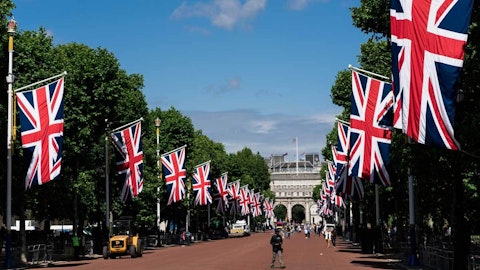Perspectives
Navigating nostalgia: the Coronation moments that matter may be Country, not King

Kurt Stuhllemmer
Hall & Partners

Nostalgia has become a tool of engagement for marketers, and there is no doubt that tapping into memories and experiences can be a potent way for brands to connect with people's emotions.
Past events and generationally defining moments, such as the coronation of a King, can evoke positive emotions and build a sense of familiarity and trust that brands can use to connect with people. Messages or moments encoded in our long-term memory are more likely to influence future behaviour, including purchase decisions. Essentially nostalgia brings the parts of the brain that were activated by the initial stimuli back to life.
Research we conducted among a representative sample in the UK and US confirms this sentiment. 81% of Brits and 83% of Americans say they enjoy things that remind them of the past. The results were similar across all age groups in both countries.
Furthermore, when asked if they were more likely to buy brands they remember from their childhood, 65% were. Surprisingly the younger generations, aged 16 to 34 years, were even more likely to do this (74% in the UK and 70% in the US) than people aged over 55 years of age. While this is perhaps because they have grown up in a brand-dominated world, it also reveals a huge commercial opportunity for brands.
Tapping into the cultural vaults of past decades
When the future is uncertain and the present complex, the past seems a great way for brands to connect to consumers.
Brands harking back to decades past in the last few years include OREO's 'Stay Playful' campaign. Every cookie pack includes AI technology behind the OREO logo, which gives direct access to a digital experience, including sharing online 'mixtapes' with friends and the chance to win a replica cassette player.
Nike also launched a new ad for the iconic Air Jordan sneaker, which ties in with the premier of the new Air movie at cinemas and chronicles how Nike's 1991 deal with Michael Jordan set the standard for America's footwear obsession.
At the Super Bowl LVII, the Japanese e-commerce giant Rakuten created an ad spot with Alicia Silverstone sporting the iconic yellow tweed suit from her starring role as Cher in the 1995 romantic comedy Clueless.
The 90s is a popular era for brands looking to evoke positive memories for their client base. In our survey, around one-third (33%) of Brits and 37% of Americans chose this as their favourite era. The 90s was a relatively settled decade, after the Cold War and before the Global War on Terror had cast its gloom. It was a pivotal period in popular culture with new fashion trends, music and movies.
Tapping back into specific moments can evoke many memories and positive anchors for brands. Still, they need to be careful to tap into events and eras relevant to their diverse audience.
Powerful or polarising?
Nostalgia should be carefully considered and tailored to fit the brand identity and audiences to genuinely connect with a clear and positive meaning.
It is most effective when used by brands with a strong history or heritage or those catering to a specific demographic with a shared cultural or generational experience. But choosing the right moment is key.
Tying your brand to the coronation of King Charles III, for example, could work against you if your target audience is not pro-Monarchy. More than half of British people aged 55 and over are positive towards the Monarchy (42% said they were somewhat positive and 15% very positive) compared to younger generations, where only 34% were positive at all, and 22% were negative with only 12% saying they would watch the event.
In the US, most people are indifferent. 41% feel neither positively nor negatively about the Monarchy, with the rest polarized equally between positive (25%) and negative (25%).
Whilst Americans are engaged with the British Monarchy, perhaps reignited by the celebrity headlines featuring Megan and Harry, few are likely to watch the coronation, with 41% saying they definitely won't and 26% saying they probably won't. Only 8% felt it was an event not to be missed. Nearly a third, 29%, feel the Monarchy is outdated and out of touch. What may have had emotional significance in the past may not today.
Symbols can be a safe substitute
Understanding which signs and symbols will connect your brand to consumers through critical moments and events instead of disengaging is worth considering. For example, more than 42% of Brits (36% of Americans) state that Britain has a rich heritage, and 38% (32% of Americans) say it's a country with great traditions. Tapping into 'Brand Britain' and our rich cultural heritage could nod to positive nostalgia without offending.
Back to the future
Nostalgia should be used with sensitivity to avoid coming across as outdated or tone-deaf. Not all brands will reflect on The King's coronation as the crown jewel in their marketing campaigns. Images of Britain's heritage may prove more powerful. Ultimately, balancing nostalgia with a modern and relevant approach that avoids alienating younger or more diverse audiences is critical in an increasingly divided world. Using 'peak' emotions and salient hooks to tie memories to your brand is a potent tool. Just be careful how you go back to the future.
Need guidance navigating nostalgia in your marketing?
Get in touch





